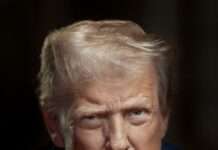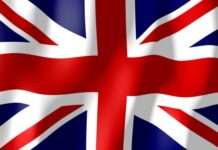BREAKING: United States Designates Nigeria a “Country of Particular Concern” – But What Does This Really Mean?
In a major diplomatic development, the United States government has officially designated Nigeria as a “Country of Particular Concern (CPC)”—a move that places Africa’s most populous nation under strict scrutiny for serious violations of religious freedom.
The announcement, approved by President Joe Biden and confirmed by the U.S. Department of State, signals Washington’s deepening concern over reports of religious intolerance, persecution, and violence against faith communities across Nigeria.
A Victory for Religious Freedom Advocates
Reacting to the news, several Christian advocacy groups and U.S. lawmakers expressed satisfaction, describing the designation as “long overdue.”
One Nigerian-American activist and long-time supporter of U.S. conservative causes took to X (formerly Twitter) to express gratitude, saying:
“Thank you @POTUS! This is why I fought for you all these years. Zero regrets. Thank you @RepRileyMoore, you’re a warrior for Christ, a brother like no other. Thank you @SenTedCruz, @RepNancyMace, and all who pushed to create the awareness. God bless you all. Now, the journey begins.”
The activist’s remarks echo a growing sentiment among religious rights campaigners who have repeatedly called on Washington to hold Abuja accountable for what they describe as systemic persecution and government inaction.
What the Designation Means
The “Country of Particular Concern” status is the highest ranking under the U.S. International Religious Freedom Act, reserved for nations found to have engaged in or tolerated “particularly severe violations” of religious freedom.
Countries on the CPC list face potential sanctions, trade restrictions, or diplomatic actions, depending on the gravity of the situation and the U.S. administration’s policy response.
Nigeria’s Past and Present on the List
Nigeria was first designated a CPC in 2020, but was removed from the list in 2021, sparking outrage from advocacy groups who accused Washington of “turning a blind eye” to ongoing atrocities.
With this new reinstatement, observers say the move could strain U.S.-Nigeria relations, especially at a time when both countries are deepening cooperation on security, counterterrorism, and economic investment.
Next Steps for Abuja
So far, the Nigerian government has not issued an official response to the renewed designation. However, analysts expect the Ministry of Foreign Affairs to push back, likely arguing that the label misrepresents Nigeria’s complex internal challenges, including ethnic conflicts and banditry, often misinterpreted as religious persecution.
Global Reaction and What Lies Ahead
Human rights groups across Africa and Europe have welcomed the decision, urging Nigeria to strengthen constitutional protections for all faiths and to prosecute perpetrators of sectarian violence regardless of religion or region.
As the activist stated, “Now, the journey begins.”
Indeed, the coming months will determine whether this renewed global pressure will lead to real reforms or deepen diplomatic tensions between Abuja and Washington.










